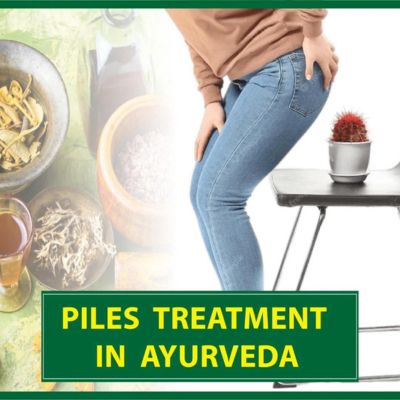Our Services
- Home
- Services

Piles Treatment
Piles, or hemorrhoids, are swollen blood vessels in the anal canal, which connects the rectum to the anus. These swellings occur in the anal cushions and typically result from straining during bowel movements. While piles can affect individuals of any age, they are most common among those over 65, with up to three in four people experiencing them at some point in their lives. Overweight individuals are at a higher risk, but piles are non-cancerous and cannot be transmitted. They develop in four stages: first-degree piles are internal and may bleed but aren't visible; second-degree piles protrude during bowel movements but retract on their own; third-degree piles hang out of the anus and require manual repositioning; and fourth-degree piles permanently protrude and can become swollen and painful if clotted.
In Ayurveda, hemorrhoids are referred to as Arsha, meaning 'pain from pricking like needles,' which aptly describes the discomfort they cause. This condition is linked to an imbalance in any of the three doshas and is considered a digestive disorder. Factors like sitting on hard surfaces, chronic constipation, and pregnancy can exacerbate the likelihood of developing piles.

Types of Hemorrhoids in Ayurveda
According to Ayurveda, hemorrhoids are classified based on the imbalance of the three doshas:
Vata Type Hemorrhoids
These hemorrhoids are hard, dark in color (almost black), and cause acute pain. Constipation is commonly associated with this type.
Pitta Type Hemorrhoids
Characterized by soft, reddish piles with bleeding. Additional symptoms may include excessive thirst, fever, and diarrhea.
Kapha Type Hemorrhoids
These are large, soft, and whitish piles that are slimy to the touch. Individuals often experience digestive issues.
Ayurvedic Treatment for Hemorrhoids
The primary goals of Ayurvedic treatment for hemorrhoids are:
- To alleviate constipation associated with hemorrhoids
- To reduce pain and size of the piles
Treatment Options
Panchkarma Therapies
Panchkarma includes physical therapies such as massages, enemas, and other cleansing procedures that support the body's natural detoxification processes. Key treatments involve:
- Kait Snana
- Enema
- Lepana
- Massage
- Medicated steam
Naturopathy Therapy
Includes therapies like hot and cold fomentation, mud therapy, and enema.
Meditation Therapy
Offers include meditation and pranayama, yoga and exercise, as well as dietary and lifestyle modifications.
Diet and Lifestyle Recommendations
To manage hemorrhoids, consider the following dietary and lifestyle adjustments:
- Avoid heavy, dry, cool, and stale foods.
- Steer clear of refined foods like jams, pastries, and canned items.
- Limit consumption of tea, coffee, aerated drinks, and alcohol.
- Exclude pickles, potatoes, and root vegetables (except radish and carrot) from your diet.
- Avoid excessive fasting, overeating, eating during indigestion, and consuming incompatible foods.
- Increase intake of whole-wheat flour, whole grains, brown rice, barley, legumes, buttermilk, rock salt, and Indian gooseberries (amla).
- Include more fruits such as oranges, figs, strawberries, kiwis, bananas, pears, papayas, apples, grapes, and mangoes.
- Drink plenty of fluids including water, soups, juices, and milk. Consume freshly-prepared warm food with a bit of purified butter.
- Engage in light exercises like walking, yoga, and swimming. Avoid daytime naps and ensure a regular sleep schedule.
info@santharisingh.com
